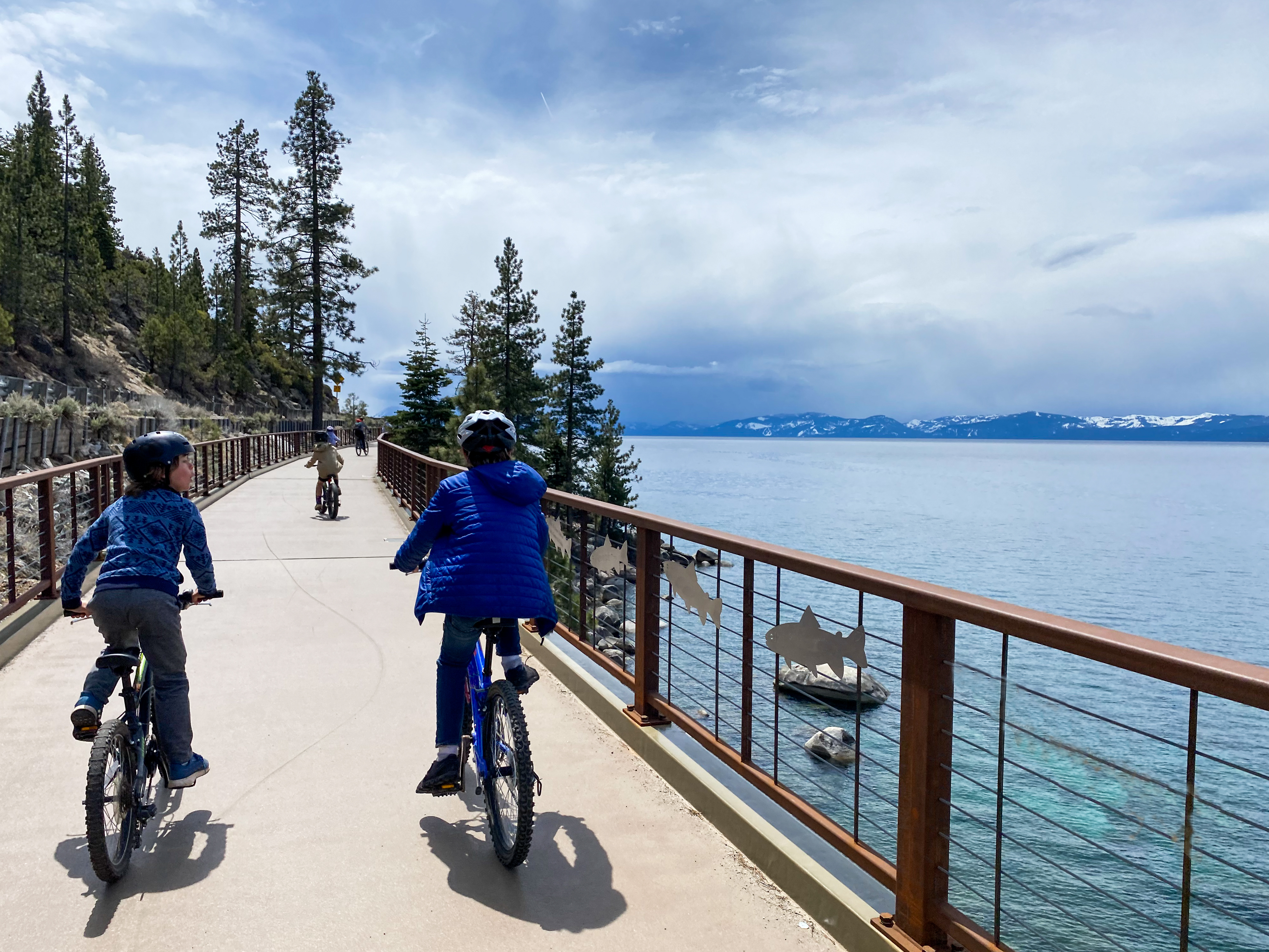B. Benefits of reducing community-wide emissions
When we reduce emissions, we can experience many health benefits. First, air quality is better when we do not burn fossil fuels. For example, internal combustion engines (ICE) vehicles emit dangerous gases that are known or suspected to be cancer-causing. These gases can also cause noncancerous health effects such as neurological, cardiovascular, respiratory, reproductive and / or immune system damage. Electric vehicles (EVs) do not create tailpipe emissions. Walking, biking and riding scooters are also zero-emissions activities. Mass transit and carpools reduce per-person emissions; if powered by zero-emission engines, even better.
Second, we can reduce heat-related illnesses in our region by reducing emissions. As greenhouse gases (GHGs) accumulate in our atmosphere, they act like a blanket, trapping heat. With lower GHG emissions, the atmosphere traps less heat. This could stabilize temperatures and help reduce heat-related illnesses ranging from minor issues such as sunburn, heat rash, and heat cramps to more severe conditions like heat stroke. Heat also exacerbates existing medical conditions such as hypertension and heart disease and is especially perilous for the very young, the very old, and people who suffer from chronic diseases.
In addition to public health benefits, climate action can also save people money, create jobs, and improve the economy. Conserving energy use through measures such as better insulation, for example, can lower energy bills. Better insulation can also make people more comfortable in their homes during extreme heat or cold, improving community resilience.
And finally, we can protect our local ecosystem with a more stable climate. With fewer emissions, wildfire risk will decrease, growing seasons will be more hospitable to local agriculture, and the region’s plant and animal species can thrive.
Environmental justice can improve in our region as a result of the benefits listed above. Low income and Disadvantaged Communities (LIDACs) have been historically overburdened by pollution, high energy bills and the lack of access to healthy local food, open spaces and equitable transportation. Climate change makes these gaps worse. The actions in this plan seek to reduce these inequities. For more information about the benefits of Climate Action, see Section F, Benefits of Climate Action, in the Introduction.

